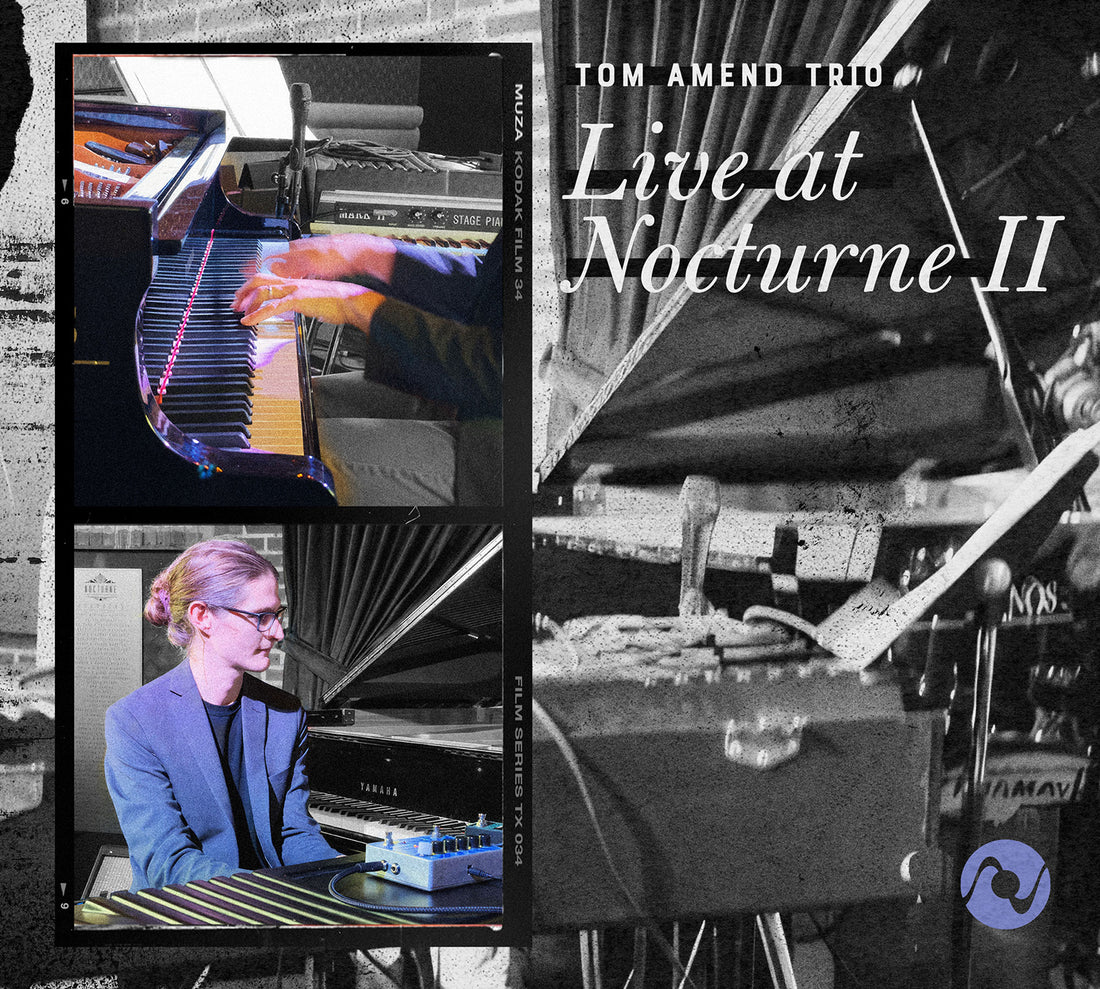Octave Records has released Live at Nocturne II by the Tom Amend Trio, capturing the band in stunning DSD 256 high-resolution audio at the legendary Denver, Colorado jazz club. The trio, featuring Tom Amend on acoustic and electric piano, Matt Smiley on acoustic bass, and Dru Heller on drums, play a spirited set of original and post-modern jazz tunes. Tom performs extensively as a leader and sideman, and has worked with Christian McBride, Chris Potter, Dave Liebman and many others.
The Nocturne’s stage, room, and acoustics are ideal for jazz, and the recording quality of Live at Nocturne II (available on hybrid SACD and download) brings listeners right into the performance. The sound is dynamic and present, from the most delicate cymbal stroke to the nuanced touch of Tom’s piano playing and the articulation and depth of Dru’s acoustic bass. As Octave Records Executive Producer Jessica Carson noted, “If you aren't able to see the Tom Amend Trio in-person, this album will bring the show to you. The realism is everything you could hope for in a live recording.”
Live at Nocturne II was recorded in Pure DSD 256 using the Pyramix workstation to capture all the musical textures of the trio, with the instruments arranged on an intimate soundstage, creating a deep connection to the music. The album was recorded and mixed by Paul McGowan with Terri McGowan assisting, and mastered by Gus Skinas.

Tom Amend.
The album features Octave’s premium gold disc formulation, and the disc is playable on any SACD, CD, DVD, or Blu-ray player. It also has a high-resolution DSD layer that is accessible by using any SACD player or a PS Audio SACD transport. In addition, the master DSD and PCM files are available for purchase and download, including DSD 256, DSD 128, DSD 64, and DSDDirect Mastered 352.8 kHz/24-bit, 176.2 kHz/24-bit, 88.2 kHz/24-bit, and 44.1 kHz/24-bit PCM. (SRP: $19 – $39, depending on format.)
Live at Nocturne II gets off to an energetic start with Carla Bley’s “Syndrome,” with dexterous interplay between the three musicians and a swinging up-tempo feel. The relaxed original, “Edge of a Dream,” has Tom Amend switching to a Rhodes electric piano, and he takes full advantage of its rich, chiming texture while Matt Smiley has a chance to contribute melodic soloing that weaves in and out of the mix. The Rhodes is also featured on Chick Corea’s “Mirror Mirror” in a lively rendition that gives each player a chance to shine in solo spots. Other album highlights include the easy swing of Amend’s original “Spatula,” the driving improvisations in “RSVP,” and the flowing musical arcs of the piano lines in “Loud Clock” and “Utviklingssang,” the album’s closer.



